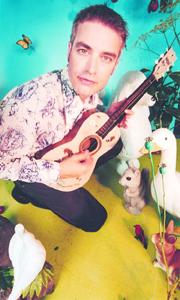In the not-so-distant future, club-goers may gear up for a night on the town by saying, “Dude, do ya wanna go down to the entertainment zone and part-ay?” City officials and nightclub owners are stepping up discussions about whether to recognize sections of Seattle as vibrant nightlife areas, in part to protect clubs and bars from noise complaints. City Council member Tina Podlodowski says the idea may merit a new ordinance, and she and her staff have begun preliminary discussions with the Department of Design Construction and Land Use, which issues permits to businesses and enforces industrial noise codes.
“This would be breaking new ground,” she says.
It is a revolutionary concept for Seattle, where the trend has been to accentuate the negatives of nightlife, from its loud, intrusive music to overly juiced-up patrons running rampant in the streets. Though nothing’s yet committed to paper, entertainment zones could turn Pioneer Square, Belltown, and other hot spots into distinctive neighborhoods where residents would be required to acknowledge that others have a right to play where they live. In other words, clubs might be exempt from the complaints of the thousands of apartment dwellers and condo owners who populate the nightlife areas. Some club owners have suggested making the residents sign waivers, similar to the system set up for those who live near Sea-Tac Airport.
But Podlodowski’s proposal may be too little too late for Seattle’s nightlife if another noise-related ordinance she supports becomes law. Cheered on by City Attorney Mark Sidran, Seattle police, and some citizen activists, the City Council is considering a new law that, in its current language, would bring stiff penalties to offenders and open new avenues for enforcement. The most dramatic change would allow officers—who were previously constrained to just giving repeated warnings—to slap first-time offenders with a $250 fine. Two-time nuisances could have to fork over $1,000 and spend up to six months in jail.
Another feature recognizes nuances of noise rather than just volume, meaning that a low-bass hum that doesn’t actually violate established decibel levels would now be subject to “octave band sound pressure” limits, as the proposal puts it. Many dance clubs emit a subtle thump that neighbors say can cause sleepless nights if not all-out madness.
Club owners contend that just going about their business could constitute breaking the law if the current noise ordinance proposal passes. “It’s potentially a disaster,” says Tina Bueche, owner of the Pioneer Square bar Dutch Ned’s. Fenix owner Rick Wyatt says that when combined with the proposed “added activities” ordinance—which would require club owners with liquor licenses to apply to host live entertainment, and which is now on a fast track—the noise ordinance would deliver the second of a “one-two punch” that could knock out music venues. Bueche agrees: “It will put people out of business.”
Supporters of the regulation insist that the 14,000 calls police receive and respond to annually are a drain on public resources, and that the noisemakers should be accountable. With the boisterous activities of summer looming, Podlodowski says she’d like to hammer out the noise ordinance and bring it to a City Council vote in June. At that point, she could turn her attention to the “entertainment zones” proposal.
If the noise ordinance passes, however, there may not be many “entertainment zones” left to protect.





